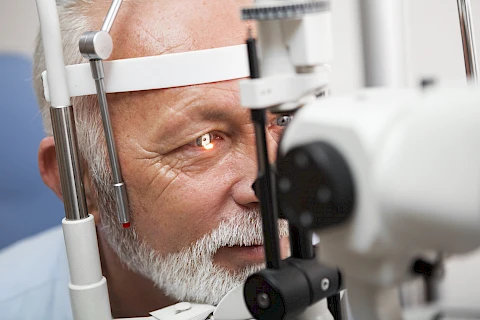
Diabetes is a common condition among seniors that can significantly impact their overall health, especially when it comes to vision. November is recognized as Diabetic Eye Disease Month, which serves as an important reminder of the relationship between diabetes and eye health.
Senior Helpers MetroWest will educate seniors and their caregivers about how diabetes can affect the eyes and provide tips to maintain good vision.
Diabetes and Eye Health
Diabetes can cause changes in the small blood vessels in seniors' eyes, leading to damage that may affect their vision. High blood sugar levels can lead to conditions such as diabetic retinopathy, cataracts, and glaucoma.
Diabetic retinopathy is the most common eye disease in people with diabetes, which occurs when high blood sugar damages the blood vessels in the retina and can eventually lead to blindness if not treated. Cataracts, or the clouding of the lens in the eye, and glaucoma, a condition that causes damage to the optic nerve, are also more common in seniors with diabetes.
Recognizing Symptoms and Risks
Being aware of the symptoms of diabetic eye disease can help in early detection and treatment. Seniors with diabetes should watch for symptoms such as blurry vision, floaters, or dark spots in their vision. Several risk factors can increase the likelihood of developing eye problems. These include a history of high blood sugar levels, high blood pressure, and high cholesterol. Seniors who have had diabetes for a longer period are also at a higher risk.
Managing Diabetes for Better Eye Health
Keeping seniors' blood sugar levels in check can help prevent or slow the progression of eye diseases. Here are some tips to manage diabetes effectively:
- Maintain a healthy diet rich in fruits, vegetables, whole grains, and lean proteins.
- Engage in regular physical activity, such as walking or swimming. However, remember to consult a doctor before starting any exercise routine.
- Take medications as prescribed by healthcare providers and monitor blood sugar levels regularly.
Regular Eye Exams and Protecting Seniors' Vision
Regular eye exams are essential in detecting diabetic eye diseases early and preventing vision loss. For seniors with diabetes, it's recommended to have a comprehensive eye exam at least once a year. During an eye exam, an eye care professional will dilate seniors' pupils to get a better view of the retina and assess any damage. Early detection can lead to better management and treatment options.
In addition to managing diabetes, there are daily habits that can help protect seniors' vision. This includes:
- Encouraging them to wear sunglasses when outdoors to shield their eyes from harmful UV rays.
- Limiting screen time and taking frequent breaks to avoid eye strain.
- Avoiding smoking and limiting alcohol consumption, as these can further increase the risk of eye diseases.
We Can Help Seniors Maintain Good Eye Health
Seniors and their caregivers should take proactive steps to monitor diabetes, recognize early symptoms of eye problems, and establish healthy habits. Regular eye exams are important in preventing vision loss and ensuring long-term eye health.
For personalized senior care solutions, contact us at Senior Helpers MetroWest. We are here to assist seniors in Natick, Framingham, Sherborn, Sudbury, and Marlborough.